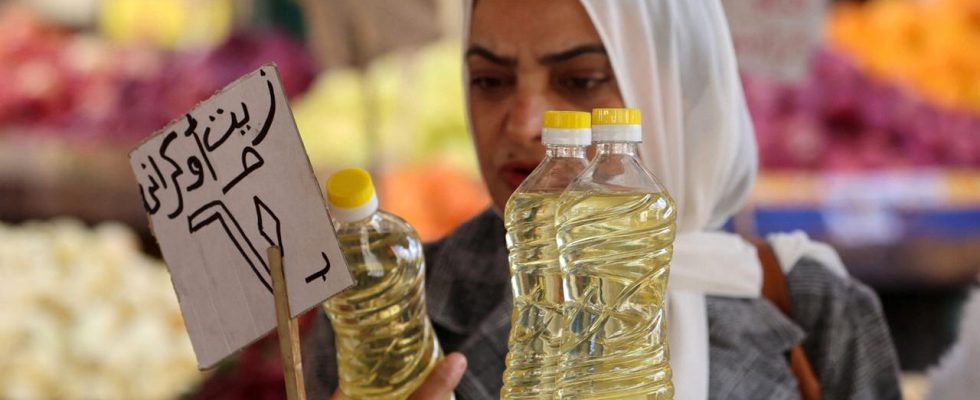The people of Egypt are suffering more and more from the economic crisis. Now even the middle class can no longer afford many things. And prices continued to rise, especially during Ramadan.
The central market in Imbaba, a district of Giza in the greater Cairo area: It is full, it is narrow, it is the penultimate day to shop for the feast before the sugar festival, the Eid al Fitr festival. “Eight pounds, eight pounds,” the salespeople shout, almost becoming a competition. It is the price of a kilo of eggplant.
Imbaba is a district in which the lower middle class lives, which is particularly suffering from Egypt’s economic crisis and fears falling into poverty. But now everything is being tried. Anyone who can still buy.
“The situation in the country is a catastrophe”
Business is good at a stand with wriggling chickens. The chickens, however, fear for their lives if they are picked up by their feet and thrown onto the scales.
Sahar, shopping bags in hand, her hair under a red headscarf, otherwise dressed in black, has decided against a chicken: “The prices are through the roof. They’re driving us crazy, to be honest. We have to buy less than in previous years. Instead of just a kilo half or a quarter.”
The situation in the country is a catastrophe, her three children have studied business administration, something sensible. But all three would now make ends meet with odd jobs.
“Middle class has problems”
Heba is a civil servant. The 46-year-old, dressed in an eye-catching leopard-print cover-up, smiles. She has to be careful with her answers: “The children look forward to the festival because they don’t notice much of the events surrounding it. We try to find the balance between the religious and the secular celebration. We’re doing better than many others.”
Prices rise during Ramadan, the economic crisis does not stop before the month of fasting, quite the opposite. Ramadan was a big problem for the poor majority in Egypt, says political scientist Amar Ali Hassan in an interview with ARD Studio Cairo: “The people of Egypt are subjected to incredibly high prices.”
The middle class, which usually helps and donates a lot, is now having problems of its own, says Hassan. “And the role of the state in providing for the poor continues to decline. This Ramadan was the most difficult month of fasting since the Middle Ages.”
“Money is not enough for a proper celebration”
Mohamed sells spices on the other side of the narrow market aisle in Imbaba. His stand shines: red, yellow, ochre, he offers a storm of colors in the small bags in his display.
But he doesn’t sell much and has had to raise prices significantly: “This is mallow tea, along with coriander, cinnamon and turmeric. Everything used to be cheap. But now – the price of black pepper has quadrupled this year.”
And yet there isn’t enough money for a proper celebration, Mohamad adds sadly: “I have seven children, all of them go to school. My eldest daughter is graduating from high school. The children didn’t get any new clothes for the celebration.” Because he can no longer afford it.
Udo Schmidt, tagesschau, April 8, 2024 7:51 p.m

